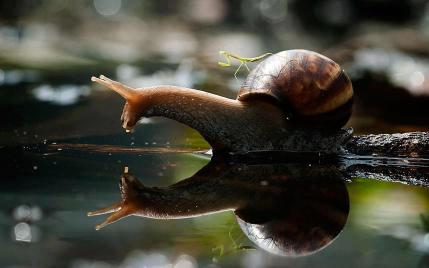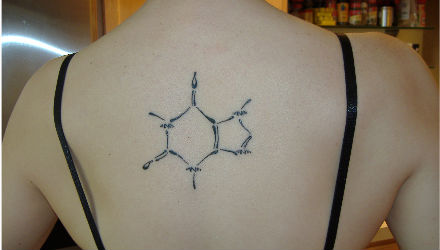If you are doing a research Master, you may be wondering whether or not to do a PhD Thesis next. If you don’t wonder, you can skip this entry and spend all the saved time to indulge in some more Flappy Bird. Otherwise, here is what I tell those who ask me about it.
For some reason, doing a PhD is increasingly seen as the logical continuation of the university programme you are following. Consequently, and because there are more student finishing a Master than PhD fellowships available on the market, not everyone will get to that next level. And this is increasingly seen as a failure, and a source of frantically, desperately seeking what in the end many of you should not be looking for.
And that’s for two reasons. First, not everyone can do a PhD. It is more than one level higher than the Master; it is doing something radically different, and very demanding, very stressing and very difficult. Second, and this is the key message of this entry, not everyone would like doing one, just like not everyone would like being a lawyer or a movie star. Doing scientific research is something quite specific, and it’s not because you have successfully completed five years of scientific studies that you will like doing scientific research, even if you were good in scientific classes. And that’s because there is one compulsory ingredient that you must be sure to have before committing to that 3+ years of misery: passion.
That’s the main point here so I’ll emphasize it: scientific research can’t be done without passion. You can be very rigorous, you can be very intelligent and knowledgeable, quantitatively or experimentally skilled, hard-working, creative even, that will be needed, but that will not be enough.
Like many other jobs, scientific research is a very stressful activity. Doing a Master Sc project is stressful, you are just starting and you know almost nothing and already much is expected of you. Doing a PhD is a lot more so, for a lot longer, and if you can’t handle stress, well, learn to handle it. Doing a postdoc removes some (not all) of the “I don’t know if I can do it” stress, but replaces it by a stronger dose of “will I ever find a job afterwards?” stress. I guess being a non-tenure staff stays quite stressful until you get tenure. In France, the few lucky that get tenure get it from the beginning (more on that later). But when you get your tenure position, you constantly strive to get good papers, good grants, good staff/postdocs/students, in one word, a good lab running smoothly and productively. That involves of course some stress, and naturally, little rewards. We don’t get large pays (especially in France), we don’t get fame, we don’t get even the simple recognition from the society (well, depends on the country, US citizen are better for that). What we get is the recognition by our peers, and the satisfaction of having worked well. Plus, that little detail of… enjoying doing scientific research. And that’s why, if you don’t have passion for scientific research, if you don’t get excited by unexpected findings, if you don’t get challenged by seemingly unresolvable questions, if you don’t get motivated by original approaches and novel methods, then you are missing the single ingredient that allows you to cope with all the stress, the bad results, the frequent rejections, the endless little failures and the plain difficulty of working long hours when you’d rather be doing something else. In that case, I guess you’re not ready for that long journey into a PhD and you most probably should do something else.
If you feel you have passion – and you should have done at least two internships in different labs, on different approaches to be sure – then you should try your hardest to find a PhD project and fellowship. Do not be discouraged by the odds of finding one, by the first few negative answers or even by the unemployment rate at the end. I loathe those teachers/researchers that discourage impassioned student – and I’ve seen that many times. It’s fair to warn you that it is tough and not guaranteed at the end, but many succeed, so why not you? If you are really motivated, impassioned, you are increasing much your chances to be among the lucky ones. And anyways, if you have scientific research under your skin, there’s nothing else you’d rather do, so it’s not like you have much choice…
Now, if deep down you’re convinced that you were born for that, remains the question of how to find a good PhD. More about that soon. Ish.






















Good post, but just to bring some positive points. This is great to do a PhD, it is true that it is a lot of pressure with some hard weeks, but I do not know one job with such level of freedom. To simplify, you can work when you want, where you want, on the projects that you like. It is a collaborative work and you do not have to be afraid to do not know because every day you learn new stuff. It is true that you really have to be passionate.
LikeLike